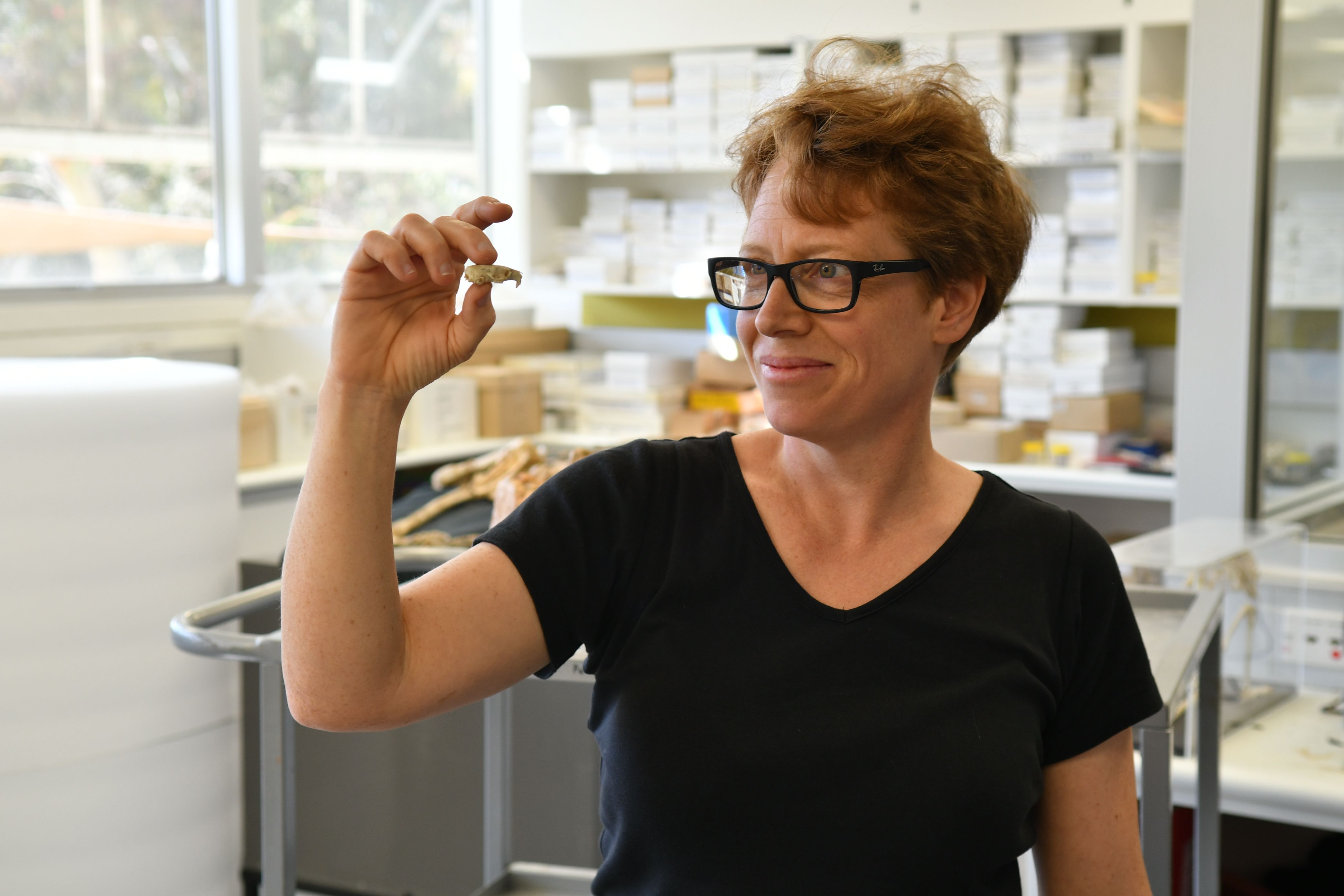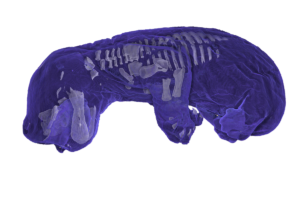
The next in Flinders University’s Meet the Minds virtual lecture series on June 15 will feature Associate Professor Vera Weisbecker, head of the Morphological Evo-Devo lab at Flinders University, and we talk with her about the marsupial skeleton research that will feature in her lecture.
What does you work involve at Flinders University?
I’m an evolutionary biologist working on mammalian diversity, and interested in the rules by which mammals ended up in the different forms that we now find them in. Australia is a perfect location for my research of its diversity of marsupials, which are pouched mammals like kangaroos, koalas, and wombats. Marsupial newborns are tiny, at most the size of a jellybean; this makes them the best group for my special interest of understanding how mammalian development influences their body’s ability to adapt into different forms.

To collect my data, I borrow marsupial skulls or other bones from museum collections. I scan these with my lab’s laser scanner or the new high-resolution CT scanner on the Tonsley campus. I then reconstruct the 3D shapes of the bones on my computers, and use these reconstructions to analyse patterns of shape differences.
Can you briefly describe the journey that brought you to Flinders University?
This is a funny story because my journey took me to Flinders twice! I studied Biology in Tübingen, Germany. In 2000, I picked Flinders University for a year abroad with the German Academic Exchange service. Two months into my stay at Flinders, I met my future husband on a Flinders Uni Underwater Club diving trip – so Australia remained the place for me.
I convinced my supervisor in Tübingen to let me do a German Master’s degree project based mostly at the South Australian Museum. After that, I received a scholarship to do my PhD at the University of New South Wales. I then managed to get a fellowship that took me some amazing evolution labs in Cambridge, University College London, and Jena (Germany) but after three years of post-docing, it was time to return to Australia. I initially got a position at the University of Queensland, but in early 2020, things truly went full circle when I started my job here at Flinders.
Can you describe a challenge in your life and how you dealt with it?
Having my first child on a time-limited postdoctoral contract while living in the UK was by far my biggest challenge. This just wasn’t often done and my peers’ reactions ranged from bemused to horrified. I was able to survive this time because my husband looked after our daughter, while I used a very generous maternity leave scheme to catch up on my publication record. It wasn’t ideal but the conflict between a competitive career and wanting children is a massive problem for many early career scientists. This issue affects women in particular, so I’m grateful for equality initiatives such as the Athena SWAN scheme, which Flinders participates in.
What is something you are most proud of?
My programming and statistics skills. I spent my school years scared of maths and statistics, and nearly failed my school graduation and undergraduate exams because of my terrible quantitative skills. But during my PhD, I realised that I was only ever going to answer my research questions if I got my head around quantitative analysis. With some great and very patient support from teachers and colleagues over many years, I am now officially a quantitative evolutionary biologist and I couldn’t be prouder.
What does a normal day look like for you?
If I were to average all the days of the year, I would probably spend three hours supervising students and working with postdocs; two hours running lab admin and committee work; an hour writing grant proposals; half an hour attending a conference; half an hour teaching; half an hour reviewing papers or grant applications; and two hours doing my own science or writing my own papers.
How do you like to relax or spend your spare time?
I find it important to switch off from science during my free time. I love reading fiction, music, bushwalking and making crochet toys for the kids. During school holidays, you’ll find me exploring beautiful South Australia on camping trips with my family.
- To register for Meet The Minds: Lunchtime Lecture at 12.30pm on Tuesday June 15 with Associate Professor Vera Weisbecker, go to the Eventbrite web page.

